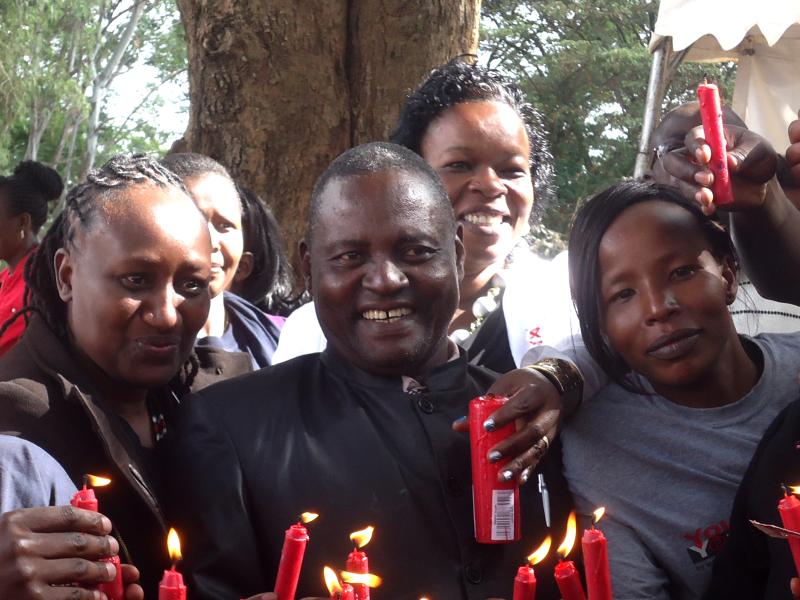×
The Standard e-Paper
Join Thousands Daily

Joe Muriuki during a past World Aids Day celebration. [James Mwangi, Standard]
The late Dr Joe Muriuki gained unusual fame in 1989 from disclosing his HIV positive status. He was given three months to live. Never mind his surname translates to one who resurrected. In disclosing his status, he was following in the footsteps of Ugandan musician, Philly Lutaaya, who had become the face of HIV the previous year.







